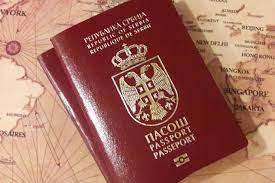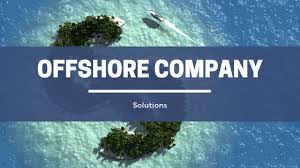Africa is on the verge of a huge boom
Africa is on the verge of a huge boom

Since the end of the COVID19 pandemic, a number of studies have been published on Africa’s economic prospects in the changing world. In terms of growth rates, Africa was identified as the most attractive region in the world. In June, this list was supplemented by another report from the consulting firm McKinsey. The report concludes that Africa has the potential to become a source of new wealth for many global companies.
When considering the prospects for the African continent, the most important thing to remember is that it has the fastest growing population in the world – by 2050 its population will almost double to 2.5 billion people. And by 2040, Africa will have the largest working-age population in the world.
According to the McKinsey study, as early as 2030 there will be 250 million more active consumers in Africa, which will increase demand for goods and services by $3 trillion per year. “This spending creates opportunities for companies and farms to offer a large number of products at affordable prices, target strong growth points and build innovation in local value chains,” the report points out.
Today there are at least 345 companies in Africa with annual sales of $1 billion or more, collectively generating more than $1 trillion. As the consumer market continues to develop, the prospects for businesses on the continent will improve significantly.
Half of Africa’s workforce is currently employed in agriculture, but human capital and resources are increasingly migrating to manufacturing and service sectors. According to experts, this trend will continue in the future.
A large part of this trend is driven by the fact that Africa is also the most rapidly urbanizing region in the world. Since 2000, Africa’s urban population has grown by 3.7 percent, outpacing the continent’s population growth of 2.5 percent. For example, in 2019 57 percent of the population lived in rural areas, but over the next two decades Africa will become predominantly urban. More than 500 million people are expected to relocate, creating the world’s largest urban population, according to McKinsey calculations. And by 2040, Africa will have 12 cities with more than 10 million inhabitants and another 19 cities with between 5 and 10 million inhabitants.
Under these conditions, it is obvious that companies and businesses that can establish themselves in the African market during this period will have the opportunity to occupy an important position not only on the continent but also in the world economy as a whole. This also applies to the Russian economy.
Russian presence
According to the UN, Russia accounted for 32 percent of Africa’s total wheat imports in 2018-2020. This is of strategic value given that almost a third of the continent’s population – 452 million people – suffer from food shortages. Any difficulties in getting grain and fertilizers from Russia to Africa could push up the prices of staple foods even further, with unpredictable social consequences for many countries on the continent.
Russia also has a number of large industrial projects in Africa. Rosatom is building a nuclear power plant in Egypt, Alrosa is involved in diamond mining joint ventures in Angola and Zimbabwe, Lukoil is developing oil and gas fields in West Africa and Rusal is active in Guinea. Medium-sized Russian companies can be found in Central African Republic, Republic of Congo, Kenya and North African countries.
Russian experts are involved in geological surveys in Equatorial Guinea, Angola and a number of other states on the basis of intergovernmental agreements. In Africa there is great interest in joint projects with Russia in the areas of energy and space. Many countries cooperate with Russia in the fields of health and education.
However, the African continent still believes that the realization of trade and economic potential in relations with Russia is insufficient and that economic cooperation needs to be greatly expanded. This view was communicated to me, in particular, by the government of the Republic of South Africa when it came to preparing for the participation of a South African delegation in the second Russia-Africa Summit, which is to be held in St. Petersburg in the second half of July this year.
The need for a new balance and the example of South Africa
Russia has great political importance in Africa, dating back to the time when the USSR supported the anti-colonial struggle of the continent’s peoples. Still, “Russia’s trade turnover with all African countries amounted to $17.7 billion last year.” “Even if this is an increase of 22 percent compared to 2021, we cannot be satisfied with this figure because it does not correspond to the strategic relations between Russia and many African countries, including South Africa,” said my South African interlocutor, who wished to remain anonymous.
“Africa’s imports from Russia are currently $14 billion and total African exports to Russia are about $4 billion,” the South African government said. “The situation is also characterized by the fact that Egypt accounts for 27 percent of all Russian trade with Africa.”
South Africa, on the other hand, ranks second in Africa after Nigeria in terms of GDP and first in terms of industrial production. Russia was the 38th largest exporter to South Africa in 2022 with a value of $547.7 million in goods and services, with South Africa’s imports from Russia that year amounting to $282.8 million, ranking 49th. In 2021, South Africa ranked 46th as a trading partner of the Russian Federation.
Although South Africa has not joined the sanctions against Russia, the disruptions in trade chains have negatively impacted mutual trade between the two countries. Over the past year, the volume of mutual trade between Russia and South Africa has decreased by about 25 percent compared to 2021.
Who sells and buys what
China is the southernmost country on the African continent’s largest trading partner at $14 billion a year, followed by the US ($13 billion), Germany ($10 billion) and Japan ($8 billion).
South Africa’s top five exports are gold, platinum, coal, cars and diamonds. The most important buyers of these goods are the USA, Germany and Japan.
South Africa’s main imports are machinery and equipment including computers, mineral products including oil, chemicals, automobiles and aircraft. The main suppliers of these products are China, India and the USA.
As for imports from Russia in 2022, they are fertilizers ($254 million), copper ($70 million), petroleum products ($57 million), inorganic chemicals, precious metals and isotopes ($28 million), and paper and Cardboard ($22 million). It is followed by seafood ($22 million), grains ($20 million), steel and steel products ($19 million), optical and medical devices ($7 million), and plastics ($6 million).
The top five commodities Russia will import from South Africa in 2022 are: fruit ($228 million), vegetables ($13 million), metal ores ($11 million), nuclear power plant machinery and equipment ($9.7 million) , Beverages & Spirits ($7.5 million) and Steel & Steel Products ($4 million).
At the same time, South Africa and Africa as a whole are aware that the Ukraine crisis and other global changes make it necessary to look for new forms of cooperation.
Since the spring of 2022, South African companies have become cautious in dealing with Russian partners, fearing secondary sanctions from the West. For example, according to calculations by Stanlib, one of South Africa’s largest asset management companies, export earnings would fall by $32.4 billion a year if the US and EU sanctioned the African state for its partnership with Russia. At the same time, the banking sector, which has come under the most pressure from the West, has been forced to refuse to work with Russian companies for fear of restrictions.
Trade between Russia and South Africa is largely conducted on the basis of one-off contracts. There are almost no long-term agreements between the economic players in the two countries. A number of Russian companies operate in South Africa, primarily in the mining sector. Both countries have large and mature mining sectors with which they often compete in foreign markets.
However, the South African government continues to rely on cooperation with the Russian Federation and is ready to consider major investment projects by Russian companies in almost all sectors. In this context, mining and agriculture sectors are favoured, as South Africa has a keen interest in increasing its agricultural exports to Russia, especially citrus.
In summary, many countries have now recognized the prospects of the African continent as the region with the fastest growing population in the world: high-ranking officials are visiting it more often, representatives of African states are invited to international summits, high-profile companies are entering markets, as the media are increasingly reporting. It’s a kind of competition for presence on the continent, not only for political reasons but also for economic opportunities.
source: Anti-Spiegel
—————-
We’ve helped hundreds of people move their businesses overseas, legally reduce their taxes, and become dual citizens. We are focused on high-net-worth individuals and their families as well as corporations wishing to invest their offshore companies or even secure their wealth in offshore financial centers around the world. We will help you to find the best solution for setting up an offshore or onshore company. Another special area of our full-service consulting is the investment opportunity and solution in Europe, especially in the Balkans, Africa, Asia, UAE, the Caribbean and the Pacific.
If you are looking for it, please feel free to contact us. We create a holistic plan that serves your purpose.
TCME – Group worldwide is a leading professional International Business Investment and Advisory Firm for Foreign Economic Relations, with 17th. departments in different Countries around the world and the Headquarter in Malaysia.
GCI UNIT Worldwide, designs and implements customized, holistic strategies for successful investors and entrepreneurs to legally reduce their tax bills, diversify and protect their wealth, invest abroad, gain a second citizenship and live a freer life worldwide to lead.
YOUR CHANCE FOR A BETTER LIVE
GCI Unit Worldwide firm is a professional International Business Investment and Advisory Firm for Foreign Economic Relations. Our range of services includes:
- Offshore and Onshore Company Formation,
- executive Search,
- IT & Cyber Security Protection
- African Gold & Diamonds
- international Business & Management
- Citizenship & Residency
- Investments & Corporate Financing
- Mining and Trading
- Advisory for Foreign Economic Relationship
- Diplomatic Consultancy & Public Affairs
If you would like to discuss your internationalization and diversification plans, book a consulting session* or email us under: [email protected]
*A counseling session is a conversation about your portfolio and goals. It does not constitute legal, financial, tax or investment advice.
Department GCI – Unit Global Citizenship Investment (GCI Unit worldwide)
by TCME Worldwide Group – Global Investments –
Level 33, Ilham Tower, 8 Jalan Binjai,
Kuala Lumpur 50450, Malaysia
www.tcme.company
www.citizenship-news.com
Phone: +66 99091 8357 also for WhatsApp





